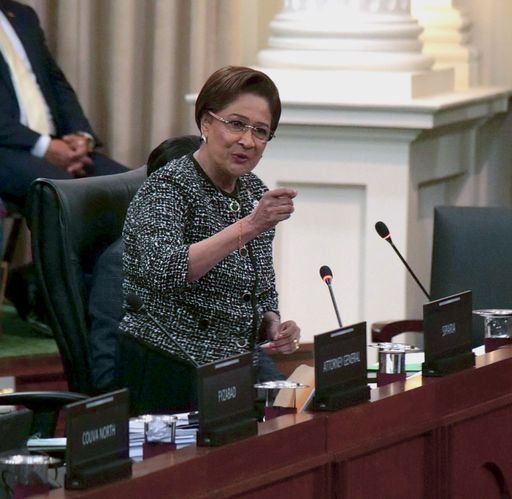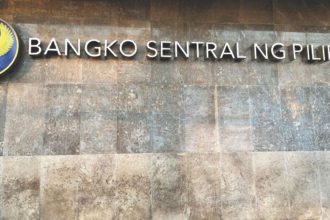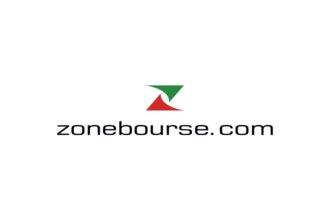(Trinidad Guardian) Prime Minister Kamla Persad-Bissessar has delivered a scathing critique of the country’s foreign exchange system, saying the Government intends to bring legislation that will allow the Central Bank of Trinidad and Tobago to reveal all forex allocations.
She also declared that EximBank (Export-Import Bank of Trinidad and Tobago) has “failed to function properly and fairly” and accused commercial banks of operating as forex cartels that are strangling local businesses.
“There are tens of thousands of businesses in our country, but many are driven into failure and bankruptcy by the cartels at banking institutions,” Persad-Bissessar said. “The situation at the EximBank is bad enough, but what happens in the commercial banks is even worse.”
The Prime Minister’s comments followed a daily newspaper article that published data from EximBank showing that pharmaceutical and chicken companies have dominated foreign exchange allocations over the past five years.
Data from EximBank showed that from 2020 to mid-2025, it distributed US$1.4 billion in forex to 123 companies under the essential window.
Some of the companies that were allocated forex from 2020 to June 30, 2025, were Arawak and Company Ltd with over US$76,203,000; Nutrimix, US$78,503,000; Smith Robertson and Company Ltd, now Aventa T&T, US$100,184,273; Pricesmart Clubs TT, US$44,304,618; Bryden PL Ltd, US$29,283,000; Pennywise Cosmetics Ltd, US$51,804,321; and Vemco (a division of CDP Trinidad Limited, now ACADO), US$19,356,203.
Some companies were able to secure a second surplus under the manufacturing sector for the period from 2018 to June 30, 2025: Arawak and Company Ltd, US$64,416,110; Nutrimix Feeds Ltd, US$53,500,000; and Vemco, US$33,353,925.
Some of the other manufacturing companies are Caribbean Bottlers, US$41,845,360; Hadco Holdings Ltd, US$21,356,231; Nestle, US$23,728,083; and ANSA Coatings, US$19,382,381.
The Central Bank Governor, Larry Howai, had shown the media on September 4 a chart revealing that US$600 million was allocated to EximBank, which is about 27 per cent of the Central Bank’s US$2.2 billion intervention in the forex market.
Yesterday, reacting to the details of EximBank’s distribution, the Prime Minister warned that the lack of transparency in foreign exchange allocations is creating deep distortions in the economy, concentrating wealth in the hands of a few while crushing small and medium enterprises (SMEs).
To confront the crisis, Persad-Bissessar announced that her Government will propose legislation in Parliament to make the Central Bank legally disclose to the public all foreign exchange allocations. “This will expose the cartels and show citizens exactly how the banks have been working to destroy SMEs,” she said.
At present, it is against the CBTT Act for the Central Bank to release such details.
During a post-Cabinet media briefing in May at the Red House, the Prime Minister had vowed to deal decisively with foreign exchange distribution. She said then that Government would compile a report on forex distribution and leakages over the last decade. The contents of this report, she said then, would be made public.
Pressed on Central Bank Governor Howai’s comments earlier this month that there was “no evidence” of a forex cartel, the Prime Minister was pointed in her response.
“He clearly said he had seen no evidence at that time when he was asked. With time, the evidence will come out,” she insisted.
Persad-Bissessar also expressed confidence in Howai, saying, “I have the fullest confidence in Howai and I believe he has been doing an excellent job in the short time he has been Governor.”
Guardian Media reached out to Finance Minister Davendranath Tancoo, who said he had no comment to make on this matter.
EximBank CEO Navin Dookeran also declined to comment on this issue.
Differing views on making forex distribution public
However, several business owners whose companies were named in the forex listing expressed grave concern about the information being made public. They saw it as a breach of confidentiality.
The business owners did not wish to be named.
One said, “It is a security risk to state the amount of money the companies are getting. In the times we are living in, this is not the route to be going down.”
When contacted on the matter, Private Pharmacy Business Retail Association of T&T chairman Glenwayne Suchit, who has been very vocal since last year on this issue, said that from the data, it was deeply troubling to see that out of 30 companies, one pharmaceutical company alone received over TT$700 million — more than US$100 million in allocations over the last five years.
He noted that this company is not only the largest recipient of EximBank’s foreign exchange but also consistently draws heavily from local banks and the Central Bank. He said that level of concentration gives rise to serious questions about EximBank’s true agenda.
Suchit outlined that the mandate of EximBank, as communicated in meetings between the PPRB and the Confederation of Regional Business Chambers, was clear — allocations should support smaller enterprises, SMEs, manufacturers, and new businesses that struggle to access foreign exchange. Instead, he believes the published list reveals a pattern of what he called favouritism that undermines these very objectives.
This practice, Suchit claimed, has already driven many small and medium-sized distributors and even retail pharmacies out of the market, as they cannot compete with a monopoly that dominates pharmaceutical imports.
“The situation extends beyond pharmaceuticals, with significant sums also going to large food and beverage importers, building material suppliers, and even stationery distributors. These allocations are shaping our economy in ways that stifle competition, reduce diversity, and jeopardise the survival of smaller businesses,” he stated.
Suchit called for a regulatory oversight committee to be urgently established to review and monitor all foreign exchange allocations across EximBank, the Central Bank, and commercial banks. Such a body, he said, must ensure that foreign exchange goes first to sectors essential to national development, not luxury imports or monopolistic players.
But former finance minister Vishnu Dhanpaul said EximBank’s forex list is not controversial since companies that sold essential items were listed. He, however, stated that if this window was a problem, then the powers that be should stop access to it, which would mean no food or pharmaceutical drugs coming into the country.
Also weighing in on the issue, CEO of the Brydens Group, Richard Pandohie, whose company was named, said there was nothing wrong with the publication of EximBank’s list of forex allocations.
“Transparency is essential. Relevant stakeholders have a right to know how the country’s resources are being allocated. This not only builds trust but also ensures accountability, prevents speculation, and allows for good governance,” Pandohie highlighted.
Meanwhile, the President of the San Fernando Greater Chamber (SFGCC), Kiran Singh, believes that T&T must focus on building resilience through greater self-sufficiency.
“In pharmaceuticals, we must encourage local manufacturing by offering tax incentives, research support, and partnerships with universities. Even partial substitution of imports, such as producing generics, basic medicines, and over-the-counter drugs locally, could save millions in scarce foreign exchange.”
He said investment in poultry and alternative feed production, such as cassava or corn-based substitutes, would reduce reliance on imports.
“At the same time, forex allocation rules must be tightened to prevent abuse, including ‘double-dipping’ by companies that access multiple sources. Allocations should be guided by transparency, with independent audits and annual reports to the public. Importantly, a fixed percentage of foreign exchange should be set aside for SMEs, supported by a tiered system to prevent large conglomerates from consuming most of the supply,” Singh stressed.





















